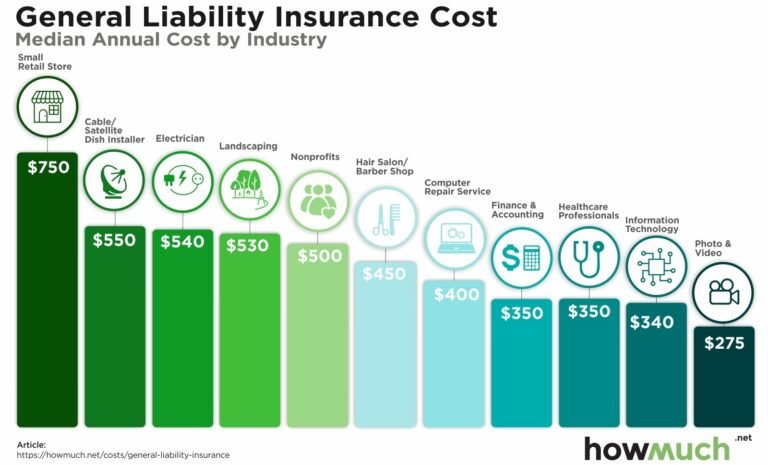Professional Liability Insurance Consultant
Introduction
Securing comprehensive professional liability insurance aligned to actual risk profiles represents a pivotal yet daunting task for enterprises relying on reputation for survival. Even the most diligent firms face potential allegations of negligence or mistakes causing client financial loss that robust policies must back.
Yet confusing cover exclusions, hard-to-compare policy variables between insurers, and ever-evolving specialty products makes choosing protection independently fraught with gaps. This drives need for specialist professional liability insurance consultants able to match sophisticated dangers with bespoke solutions.
This article explores professional liability consultants assisting with the likes of:
- Appropriate cover assessments
- Optimising cover to needs & budgets
- Claims support access
- Risk management guidance
- 5 key questions
Read on for everything businesses should know about leveraging consultants for securing water-tight professional insurance.
Appropriate Cover Assessments
Experienced professional insurance consultants critically examine client operations to gauge likely threats across aspects like:
- Services & advice delivered: Precisely which activities could prompt negligence claims so proper activities coverage exists.
- Clients served & contracts: Assess if particular customers or service complexities heighten dangers to guide cover.
- Sector risks insights: Apply cumulative insights into claims trends within healthcare, financial advice, technical services etc to suggest covers like loss of documents, defamation protections based on collective risk patterns noticed.
- Regulatory & contractual necessities: Mandatory covers to meet legal operating requirements.
- Business continuity risks: Quantify worst case financial impact of serious claims to specify adequate cover limits preventing severe distress.
Without this lens comparing previous claims and steering cover selection accordingly, protection adequacy gaps emerge.
Optimising Cover To Needs & Budgets
Top consultants don’t just determine baseline cover requirements, but help tailor make protection by:
- Layering limits for better value: Core negligence cover could be augmented with supplementary specialist layers to optimize broader safety nets without overpaying on comprehensive cover premiums difficult to secure for newer firms.
- Steering excess choices: Clients are guided on optional excess regimes spreading personal liability across insurers and the firm itself to achieve premium efficiencies.
- Promoting savings: Directs clients to providers competently serving their sector with keener pricing based on long-term partnerships.
- Managing policies: Handles documentation, renewals, mid-term adjustments as an extension of client teams to remove administration headaches given perpetual change in small growing businesses.
Holistic oversight in planning, acquiring and maintaining cover keeps risks locked down adequately despite commercial flux.
Claims Support Access
When eventualities arise prompting claims, reliable consultants get to work immediately:
- Notifying insurers: Rapidly triggers notification processes giving insurers early visibility of incidents to aligned to policy obligations.
- Evidence gathering: Methodically compile documentation required like incident records, accounts, Operating Procedures, customer contracts etc to demonstrateCover triggers were met.
- Negotiations: Acts as an authoritative broker between clients and insurers to ensure claim validity is affirmed, resolving any disputes over technicalities that could inhibit payouts.
- Updates: Provides regular progress reporting against expected timeframes and compulsory internal actions required to access payouts.
Expert oversight relieves clients to focus on operations confident payout delays or blockers will be addressed firmly by their risk advisor.
Risk Management Guidance
Reputable consultants also share insights that help mitigate dangers over the long-run:
- Prevention protocols: Advice introducing checks and measures that evidencing delivery quality and help avoid issues – like client sign-offs on work.
- Documentation upgrades: Centralised records that better demonstrate safety controls were upheld at a particular project phase.
- Training investment: Highlights beneficial training like communication, de-escalation etc that reduces professional-based disputes originating from misunderstandings.
- Uncovering hidden exposures: Fresh perspectives assessing crossover liabilities related to exposures like cybersecurity, directors duties etc that might amplify risks.
Ongoing collaboration builds internal capabilities ensuring the underlying risk management foundations don’t erode amid growth.
5 Key Questions for Consultants
- Do consultants have access to exclusive covers outside what buyers can independently secure? Yes – long-term insurer partnerships and bespoke product knowledge helps consultants source custom solutions others can’t easily replicate.
- Can consultants provide references from existing clients in similar sectors? Yes – reputable consultants should make satisfied client referees available to talk to providing credibility on abilities to match distinct risk profiles.
- Will consultant claims support be acknowledged and respected by insurers? Yes – long standing ties between leading brokers and insurers means swift responses follow when they are acting for clients.
- Is clear written reporting provided on cover recommendations? Critical advice will be formally documented rather than just delivered verbally without retrievable substance.
- Can clients access risk management tools and templates provided by brokers? Yes – decent brokers share insurable risk checklists, incident reporting logs and training modules to help drive positive behaviors internally.
Conclusion
In closing, while professional liability insurance represents necessary protection for advisors and problem solvers helping clients deliver outcomes, the dizzying range of covers invoking complex legal language leaves holes. Yet specialist consultants versed in niche policy elements and unofficial product releases bring welcome clarity.
Leveraging consultants relieves clients from assessing complex variables like ideal cover variants, cost optimizations and claims handling strategies themselves when providers inconsistently articulating offerings and exclusions even within single policies. Trusted risk advisors prevent buyers from losing focus on their commercial goals.
For enterprises weighing up seemingly invisible threats against hard product realities in securing safety nets without gaps, consultants bridge gaps. Armed with cumulative sector claims patterns and bespoke policy availability, experts provide the informed pilotage small growing businesses need when their own capabilities fall short of the regulation and risk management expertise required.






